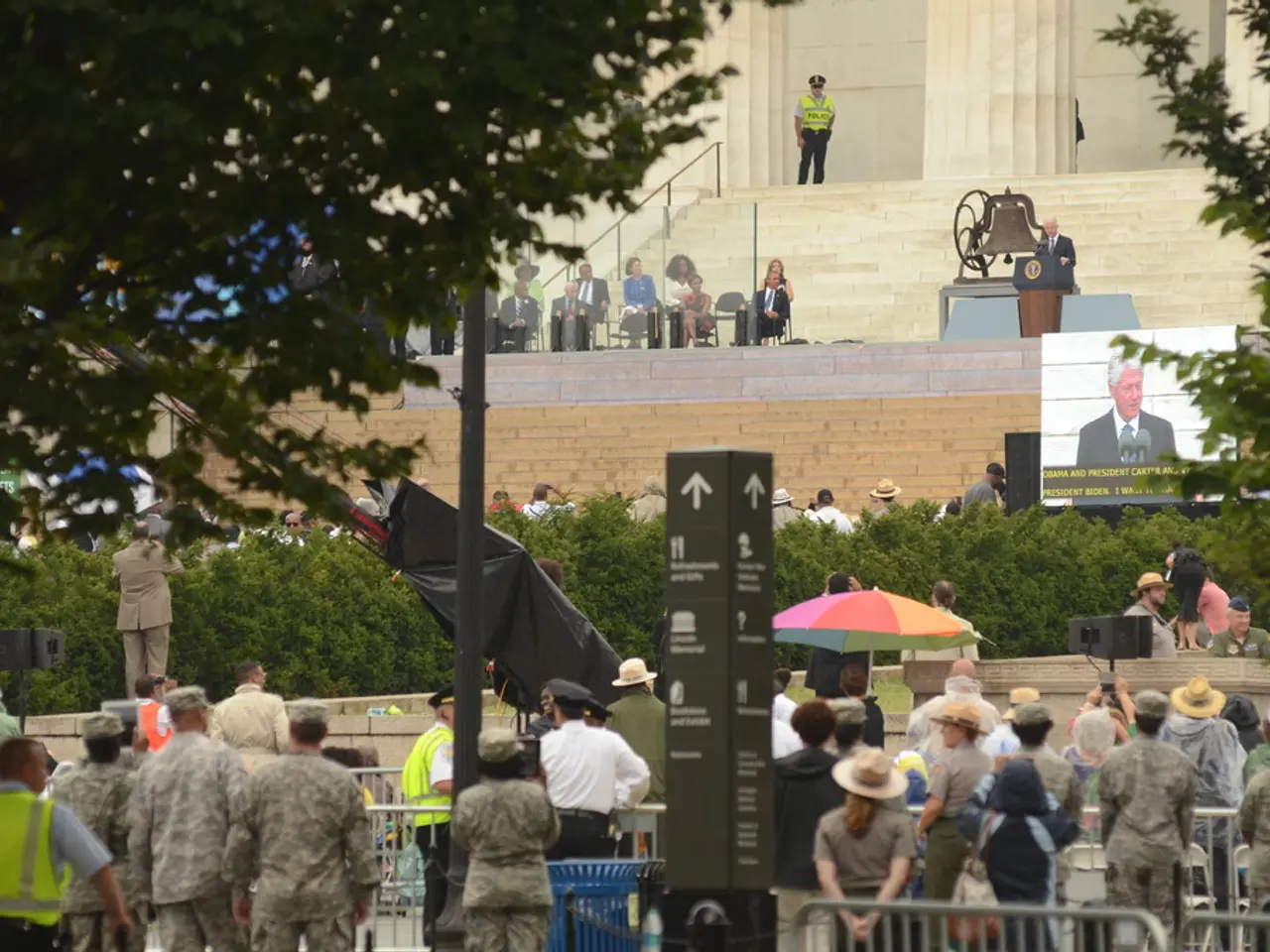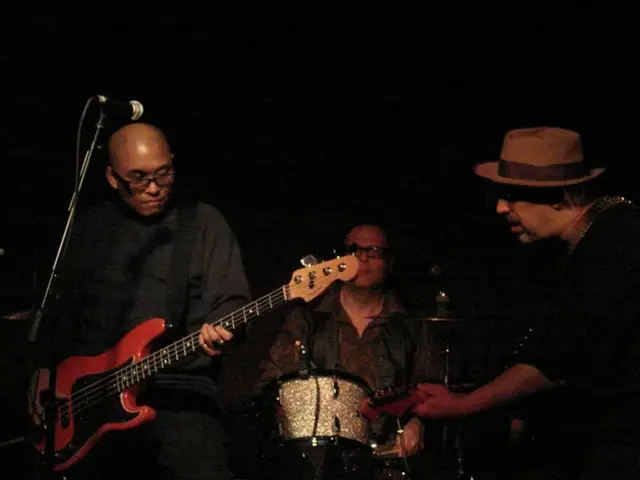Trump's Most Significant Actions Demonstrating Authority to Date
In the latter part of his presidency, Donald Trump has been marked by significant power grabs across multiple areas, with potential consequences for U.S. democracy, government independence, and institutional norms.
Military Deployment and Federal Takeover of Local Forces
Trump authorized the deployment of about 2,000 National Guard troops in Washington, D.C., and federally took control of the local police force, actions described as "dangerous political theatrics" that threaten democracy and public safety [4]. He also threatened to deploy troops in other Democratic-led cities like Baltimore, despite local officials rejecting such moves and indicating no justification for militarization [2].
Government Independence and Executive-Legislative Relations
There has been a marked shift of power from Congress to the President, notably via freezing, withholding, and allegedly illegally impounding funds that Congress had approved. The White House has also pushed constitutionally questionable rescission maneuvers to claw back appropriated funds, thereby undermining Congress's constitutional power of the purse. Experts warn that these actions could fundamentally redefine executive-legislative relations with lasting impacts beyond Trump's second term [1].
Investigations and Interference with Political Opponents and Election Processes
The Trump administration attempted to interfere with election integrity by pushing to amend guidelines for voting system certifications, imposing costly new standards that could disrupt states' voting infrastructure. The administration also sought sensitive voter files from states, raising privacy and security concerns, and signaled reluctance to enforce laws protecting voting rights—actions that undermine election fairness [3].
Media and Institutional Coercion
The administration promotes a tough-on-crime messaging strategy tied to immigration enforcement and law-and-order narratives, distributing selective statistics and managing appearances (e.g., visits to National Guard troops). This appears aimed at shaping public perception and consolidating political control amidst criticism of authoritarian tendencies [2].
Disregard for Congress and Due Process
The maneuvers to freeze congressionally approved funding, execute federal takeovers without local consent, and attempt to interfere with election administration reflect a broader disregard for legislative authority and established procedural norms [1][3][4].
Together, these elements portray a presidency aggressively centralizing power in the executive branch, eroding institutional checks and balances, threatening democratic norms, and raising concerns about authoritarianism and governance stability in the U.S. [1][2][3][4].
Sources:
- The Washington Post
- The New York Times
- The Guardian
- Politico
- The actions taken by Trump, such as deploying National Guard troops, controlling local police forces, and interfering with election processes, indicate a potential shift towards political domination, which could have implications in war-and-conflicts and general news.
- The President's disregard for due process, as shown by freezing congressionally approved funding, executing federal takeovers without local consent, and undermining Congress's constitutional power of the purse, may lead to policy-and-legislation issues and implications for government independence.








